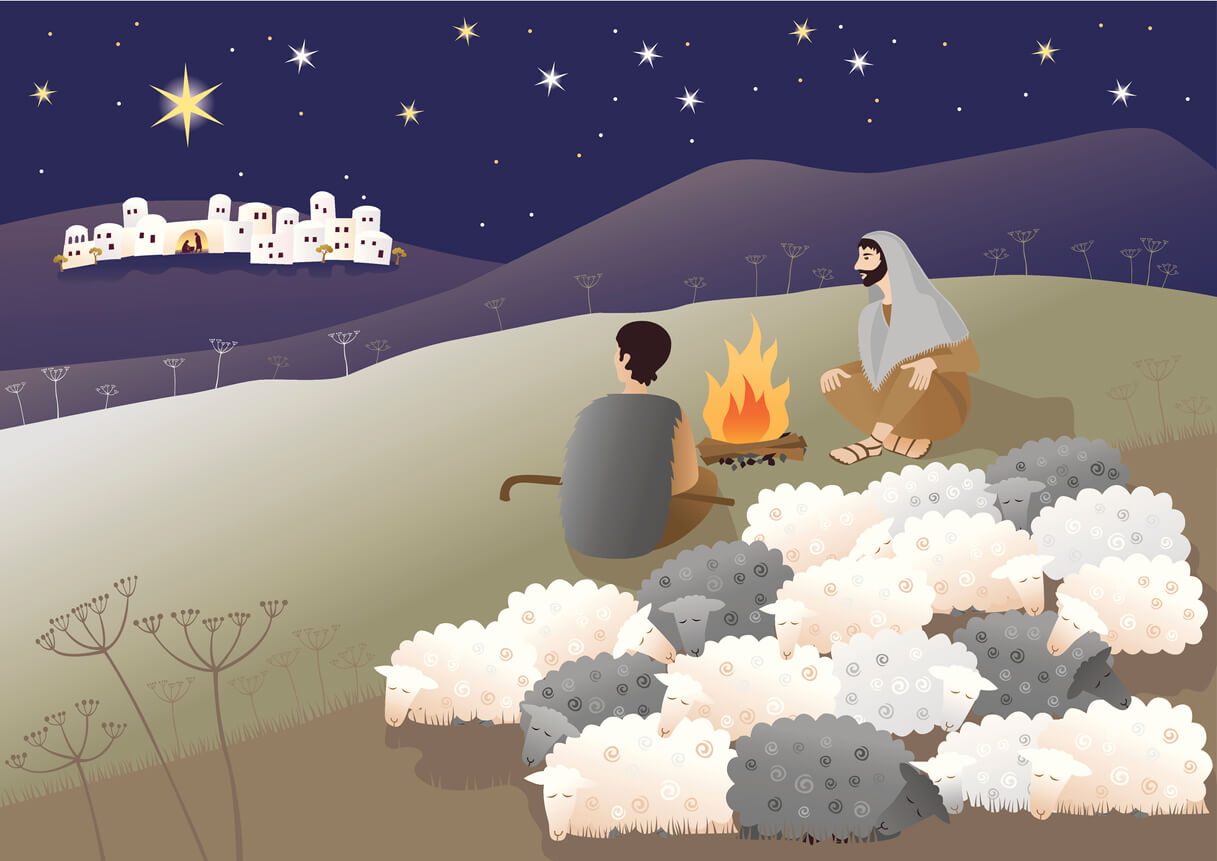
Christmas is the most wonderful time of the year — at least according to the carols.
But, as one interfaith group is pointing out, some of the theology, liturgy and rituals of the season can make the winter holidays less than merry for Jews.
A recent statement from the Council of Centers on Jewish-Christian Relations (CCJR) expressed concern about the possibility that Christian rhetoric is contributing to rising antisemitism, including narratives that contrast darkness before Jesus’s birth with Christianity’s light.
And while the average layperson is likely unaware of some of the obscure religious treatises mentioned in the statement, it’s long been observed that the celebration of Jesus’s birth, which Christians believe to be a universal cause for joy, can have the side effect of emphasizing the otherness of Jews, who do not participate in the celebration.
“Most Christians who are in church aren’t thinking about the Jewish people on Christmas,” said Rev. Daniel Joselyn-Siemiantak, an Episcopal priest and scholar of Jewish-Christian relations at Boston College, who helped draft the CCJR statement.
“But they’re also receiving a lot of messages as a subtext.”
“Jews might say, well, the Christians are hopeless and they’re going to hate us forever, so what’s the point of engaging with them?” said Malka Simkovich, chair of the Jewish studies program at the Catholic Theological Union in Chicago, who sat on the drafting committee for the CCJR statement.
“And Christians might admit that antisemitism is a huge problem, but it’s not necessarily a Christian problem because Christians espouse universal love,” she said. “This self-understanding elides so much theological anti-Judaism that really is specific to Church teachings, but just is not part of the self-understanding of liberal Christianity today.”
One of the issues that comes up around Christmas, specifically, is the thorny fact that Jews do not accept Jesus as the messiah that many prophecies in Jewish scripture predict. And as Joselyn-Siemiantak explained, the Advent, Christmas and Epiphany seasons center around the idea that “the coming of Jesus is the fulfillment of prophecies from the prophets of Israel.”
Liturgical readings during the Christmas season, Joselyn-Siemiantak said, often pair readings from Hebrew Bible prophetic books that talk about the coming of a Jewish messiah with stories from the Gospels of Luke or Matthew about the birth of Jesus — all to try to demonstrate that Jesus is the messiah prophesied in Jewish scripture.
Though Jews do not read the Hebrew Bible prophecies as pointing to Jesus, this juxtaposition can imply that Jews have rejected the words of God by denying Jesus, an implication that can contribute to impressions of Jews as other, or even dangerous.
And even for Christians who aren’t particularly interested by the finer points of biblical exegesis, that message can still be embodied in the carols and celebrations that define more casual Christmas observance.
Think about carols like “Joy to the World” and “Hark! The Herald Angels Sing,” which emphasize the idea that Jesus’s birth was a universal cause for joy that shed light on the entire world. It’s an inclusive message on its surface, but the implication is that those who do not participate in the joy of the season are, at best, curmudgeonly, and, at worse, blind or even rejected by God.
And some carols take it even further, notably “O Come, O Come, Emmanuel,” which references “captive Israel,” whom Jesus has come to rescue from “the depths of hell” and “Satan’s tyranny.”
“Before Jesus comes, Israel is in darkness, Israel is captive, Israel needs redemption that only Jesus can provide,” Joselyn-Siemiantak said of the carol’s framing. “So what ends up happening is that the Church applies all that to itself — that we are the Israel that has been redeemed, that we are the Israel that has had light shined on it.
“So the question that you’re left with is like, well, what about the Jewish people who are also Israel?”
“Most Jews do not have a problem with what some scholars call soft supersessionism,” said Simkovich — soft supersessionism being the Christian idea that faith in Jesus enhances Christians’ ability to interpret and understand Jewish scriptures that were written before Jesus’s birth.
“But problems occur when Christians employ hard supersessionism, or replacement theology,” she said, “which denies the legitimacy of a Jewish reading of these scriptures by arguing that no true understanding of these texts can be attained without faith in Christ.”
Liturgically, maintaining respect for the legitimacy of the Jewish perspective and faith in light of Christian theology can prove tricky: Either Jesus is the messiah prophesied for centuries, or else he is not. And Joselyn-Siemiantak recognizes in those kinds of clearly-drawn questions what he called an “irreducible difference between Jews and Christians.”
But while this kind of balancing act may be tricky, it is core to interfaith relations. “You need to honor the boundaries between the communities,” Simkovich said. “That is the hardest part of dialogue.”
The post Christmas is a beloved holiday. Could it also contribute to rising antisemitism? appeared first on The Forward.

